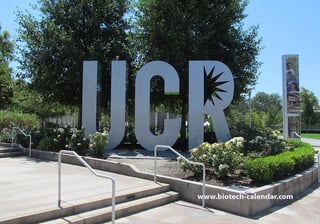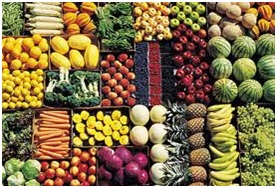Biotech scientists at the University of California, Berkeley received $12.3 million from the Department of Energy's Biological and Environmental Research Program. The researchers aim to develop an in-depth understanding of drought tolerance in field-grown sorghum.
Read MoreTags: agriculture, UC Berkeley, Northern California BioResearch

Next week PLOS journal will publish an exciting article featuring a new biological discovery. Scientists at UC Riverside have discovered critical information regarding insect development.
This study uncovers the use of DNA as an organism’s biological clock in sexual development, or metamorphosis in insects. With applications in new cancer treatments, agriculture, human health and potential applications in zoology, this study opens gateways of undiscovered information. This is one exciting example of the potential in research and the intersectionality in life science, molecular biology and biotechnology supplies.
Read More
Tags: CA, agriculture, DNA Research, Cancer, Genome, UCR, Fruit Fly
Dr. Madelaine Bartlett, a biologist at the University of Massachusetts in Amherst, recently received a four-year $4 million grant from the National Science Foundation. The new research funding will allow Barlett and colleagues from UMass and other institutions to study the genes that regulate plant stem cell biology and their effect on fruit size and yield.
Read MoreTags: Stem cell research, University of Massachusetts Amherst, University of Massachusetts, agriculture, new research funding, Massachusetts, agricultural, MA, Northeast Region, UMASS, new research grant, NSF funding, NSF grant, NSF award, Plant Biology, agricultural business, agribusiness
Mechthild Tegeder, a professor of Plant Molecular Physiology at Washington State University, has designed a way to dramatically increase the yield and quality of soybeans. Tegeder accomplished this by developing a novel way to double the amount of nitrogen fixed by the plants. The agricultural research study indicates a breakthrough that could help meet society's need to feed an increasing population while also protecting the environment.
Read MoreTags: Washington, WSU Pullman, WA, Washington State University Pullman, agriculture, WSU, Washington State University, agricultural, Northwest Region, research news, vegetable crops, agricultural business, agribusiness
 Downy mildew, a fungus-like pathogen, is a major threat to crops around the country. Cucurbit crops like squash, cucumber, and melons suffered from a downy mildew outbreak in 2004 that initially only affected crops in the southeastern United States but later spread throughout the Midwestern region, and is still affecting these foods today. Michigan is a state where crops are greatly affected by downy mildew. A team of researchers from Michigan State University will be leading a $2.3 million project, granted by the U.S. Department of Agriculture, to develop methods to manage downy mildew. (Image courtesy of Kerstin Ellen Hantschel via Wikimedia Commons)
Downy mildew, a fungus-like pathogen, is a major threat to crops around the country. Cucurbit crops like squash, cucumber, and melons suffered from a downy mildew outbreak in 2004 that initially only affected crops in the southeastern United States but later spread throughout the Midwestern region, and is still affecting these foods today. Michigan is a state where crops are greatly affected by downy mildew. A team of researchers from Michigan State University will be leading a $2.3 million project, granted by the U.S. Department of Agriculture, to develop methods to manage downy mildew. (Image courtesy of Kerstin Ellen Hantschel via Wikimedia Commons)
Tags: Michigan State University, Midwest, agriculture, new research funding, MI, East Lansing, MSU, 2016, BioResearch Product Faire, vegetable crops, downy mildew
 A laboratory failure has led to the accidental creation of a new technology that could benefit agriculture, thanks to the smart thinking of researchers at the University of Oregon.
A laboratory failure has led to the accidental creation of a new technology that could benefit agriculture, thanks to the smart thinking of researchers at the University of Oregon.
Read More
Tags: Bioresearch, Oregon Health and Science University, UOr, agriculture, University of Oregon, Oregon, 2015, BioResearch Product Faire Front Line Event, Biotech current events, OR, Eugene, Northwest Region, life science research grants, Science Events
With the North American drought ended last year according to the USDA, it still affects parts of the United States and dries out plant life in its wake. The drought reached 80 percent of the country’s agricultural land, and many of the impacts of the stunted food production will be felt this year at supermarkets and restaurants. It’s no surprise, then, that a large question in agricultural biotechnology is how to more effectively combat drought for the present and future. This is where Michigan State University shines, presenting a way for plants to make even better use of the water they receive.
Tags: Michigan State University, 2014, Midwest, 2013, agriculture, water, membranes, Michigan, BioResearch Product Faire Event, MI, Front Line event, East Lansing, MSU

